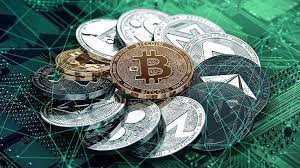Today we are in a place similar to where we have been many times before. Our economy depends on trading pieces of paper that are both valueless and tremendously valuable at the same time. So, if there is nothing backing the dollar, why does everyone in the world still desperately want it?
Remember, a currency needs to meet three standards to be viable and the US dollar meets those standards:
- Money needs to be easy to use.
- Viable money also needs to hold its value over time.
- People need to have faith in it as an agreed upon medium of exchange.
These last two characteristics are related especially when we are talking about fiat currency.
If a currency fluctuates in value too much, it is difficult to use because no one can agree on its value at the time of a transaction. If a country is printing too much money, then the money will decrease in value. This happens when a country doesn’t have a healthy economy behind the money, and it isn’t producing things people want to buy using money.
Other currencies across the world meet the criteria of a viable currency so why is the US dollar so desirable? After World War II people across the world had tremendous faith in the US dollar. This was partially because the US had a lot of gold but, as we saw above, having gold didn’t really matter.
 What was more important was that the US was producing things that people across the world wanted. GM sedans, Coca-Cola, Levi jeans, and Elvis records could all be bought with dollars.
What was more important was that the US was producing things that people across the world wanted. GM sedans, Coca-Cola, Levi jeans, and Elvis records could all be bought with dollars.
If people lose faith that the money can buy things they want, like people did with wildcat bank money, that money’s value will go down. People want to trade that devalued money for other money or things that people want. When this happens, the devalued money is no longer an agreed upon medium of exchange.
The US economy still produces a lot of goods and services that people want, and it also has a legitimate government and financial institutions that people across the world trust. The value of a country’s fiat currency is largely a measure of the collective belief in the health of that country’s economic and political institutions.
Collective faith is really what has given all types of money value across time:
- The people in Sichuan had faith in the merchant to keep their coins and give them back when they asked for them. Throughout most of history, people had faith that other people had faith that gold was valuable.
- Colonial Massachusetts citizens had faith they could pay taxes with pine tree printed paper.
- Americans had faith in many institutions during the Free Banking era, though some more than others, so they discounted currency based on their faith in the institution.
- The argument between the goldbugs, Greenbacks and free silver advocates was an argument about faith. This is why the goldbugs appealed to religion in their advocacy for species currency.
 After the devastation of World War II, America was so strong and other modern economies so weak that everyone in the world had faith in the dollar.
After the devastation of World War II, America was so strong and other modern economies so weak that everyone in the world had faith in the dollar.
So, should we have faith in crypto? To answer this question, we need to understand how this digital money works.
In 2008, in the middle of the greatest financial disaster in the US since the Great Depression a person going by the pseudonym Satoshi Nakamoto wrote a paper called Bitcoin: A Peer-to-Peer Electronic Cash System. Nakamoto had similar ideas to Andrew Jackson in that they didn’t like the government control of money and they didn’t trust banks. Nakamoto proposed that we use computers to create a type of money that governments and banks couldn’t
control. To explain how they did this I want you to reach into your pocket, wallet, or purse, and find a receipt (an email receipt will work too.)
Why did you keep this receipt? It shows how much you paid, what you got, and when this happened. Seems useless. Typically, we only keep receipts to return the item we bought if we want to, or if we are paying for a service, like a concert, we might want a receipt in case the artist never shows. If we have the receipt we can ask for our money back.
 Sometimes we keep receipts to show the IRS or an accountant what we bought, and to prove we didn’t steal something. A receipt is proof that the transaction occurred. It’s a record to prevent fraud. This type of record keeping is actually very similar to the IOU of the Chinese merchant, or the tobacco receipts in colonial Virginia.
Sometimes we keep receipts to show the IRS or an accountant what we bought, and to prove we didn’t steal something. A receipt is proof that the transaction occurred. It’s a record to prevent fraud. This type of record keeping is actually very similar to the IOU of the Chinese merchant, or the tobacco receipts in colonial Virginia.
![]()
“Will Cryptocurrency be the Money of the Future?”
- Listen to Cryptocurrency e-book podcast – read by Keith Dunford, Voice Over Productions
- Cryptocurrency ebook by Morgan Franklin Fellowship
- Read blog series – “Cryptocurrency – Money of the Future”
![]()
A Journey to Personal Financial Success
At Morgan Franklin Fellowship (MFF), we support the concept of financial freedom – by teaching participants how to save by paying themselves first, invest for their future and grow their net worth.
Learning how money works and how to talk about money with others are the first steps towards recognizing an individual’s lifelong financial goals. Our online programs, podcasts, blogs, and book reviews and resources are designed to help you learn the concepts, rules and vocabulary of money, finance and investing.
Becoming an MFF Fellow
Our Standards of Financial Literacy – Learning about money series is engaging, full of interesting information, and easy to navigate. Adapted from the National Standards for Personal Financial Education developed by the Council for Economic Education (CEE), this robust curriculum features six short lessons on such important topics as earning income, understanding the value of saving and using credit. When completed, this program lays the foundation for becoming an MFF Fellow.
Becoming an MFF Fellow is the ticket to access additional MFF programs and opportunities for mentoring, networking, internships and real-world opportunities. Hear from the MFF Fellow themselves on how these opportunities encourage them to continue their journey to personal financial success.
Learn More about Money
Begin the journey towards personal financial independence today. START LEARNING TODAY